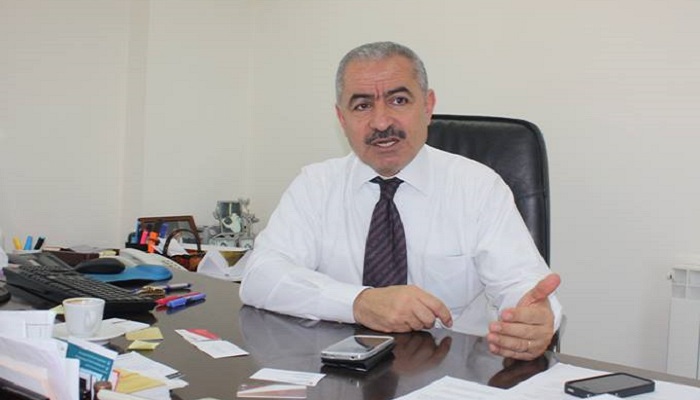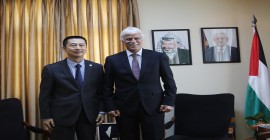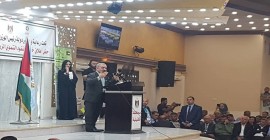Dr. Shtayyeh: the Occupation and Some of Our Polices Hinder Development

Palestine Economy Portal
Translated by Hakim Odeh
During his lecture titled "Neo-liberal Economic Policies: Growth without Welfare", which he delivered at the conference organized by the German Friedrich Ebert Foundation in Ramallah, Dr. Shtayyeh, President of the Palestinian Economic Council for Development and Reconstruction (PECDAR), stated that the problem of the Palestinian economy was and still is that the Palestinian Authority is responsible for creating job opportunities, fighting poverty and providing services to 100% of the citizens, but at the same time it does not have control over its economic capabilities, natural resources, and borders.
Dr. Shtayyeh explained that the most significant challenges to development in Palestine are the high rates of unemployment and poverty, inequality and instability, pointing out that all these factors are caused by the occupation, the consequences of the Paris Economic Protocol and some national economic policies.
Dr. Shtayyeh added that the Palestinian economy has become dependent on the Israeli economy as a result of the dependence of the Palestinian infrastructure, water, trade and labor market on Israel.
He also explained that 60% of public spending goes to salaries, which constitutes a real economic problem because the government is the largest employer in the Palestinian Territories as a result of the inability of the private sector to create new job opportunities.
Dr. Shtayyeh attributed the high rates of unemployment to what he described as the distorted composition of the Palestinian economy, resulting from the Israeli occupation’s policies towards the production means, particularly the land.
He also pointed out that there is a gap in unemployment rates between the West Bank and Gaza Strip, as well as between the camp, city, and village, between men and women, and finally among young people and the rest of the age groups.
In the same context, Dr. Shtayyeh clarified that during the past ten years Gaza has achieved a 25% growth, while the unemployment rate in Gaza has increased by 75%, which indicates that this growth was not real and did not reflect on job opportunities.
In a separate context, Dr. Shtayyeh said that the Arab Region is suffering from three crises, which are the lack of legitimacy, the absence of democracy, and exclusion.
Dr. Shtayyeh explained that the neo-liberal policy is a process of restoring old liberalism, which focuses on the role of the market and the liberation of private sector projects from any restrictions or governmental roles, regardless of the social harm this might inflict, the negative effects on the wages and rights of workers, the decrease in public spending on social issues, education, health and others, the redrafting of legislation and laws to ensure the flow of profit, and the privatization of state property and selling it to the private sector.
Finally, Dr. Shtayyeh called on the State to have a larger role in the creation of new job opportunities and social security networks.




